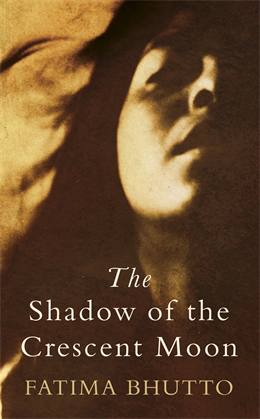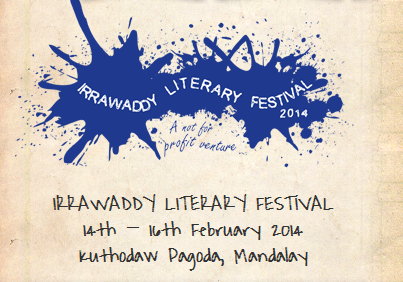I assume you've read
January’s book club pick, the financial thriller Nothing Gained, by Phillip Y. Kim, so I'm not going to give a detailed
plot summary. If you need one see here to find an outline from the publisher, Penguin, China.
Since the West has nothing on Asia when it comes to
naked capitalism, it is fitting to see an example of Trader Boy Lit set in Hong
Kong not on Wall Street, or in London.
I think it’s fair to say this is a novel where the
most important element is the plot – which in this case can perhaps be
summarised as: betrayed wife relies on her dead husband’s mistress to get her
family out of a hole. That, I thought,
was an interesting idea, but I found Kim’s execution of it occasionally frustrating.
To give just one example, I failed to believe Todd would be so keen to help Cheryl –
which is to say I failed to believe a thirty something,
affluent, male Westerner in Hong Kong would fall in love with an expat Korean-American mother who was approaching forty and who was trailing
significant baggage. Kim himself seems to have a problem with this aspect of
his plot. He surely admits his love
angle is pretty unlikely when he says of Todd’s trip to the party district, Lan
Kwai Fong: “The next several hours were spent hopping among the many bars
frequented by young professionals, aspiring models, and Chinese girls looking
to meet Westernized men to liberate themselves from cramped living quarters
shared with parents, siblings, and other relatives.” Yup, in reality, Todd would hook-up with
assorted Asian female love entrepreneurs - Filipina, Chinese, Thai - not an
expat mum. And is that liberate
ironic? It would be nice to think so,
but I’m not sure.
Later, Kim again reveals his nervousness about the newly
widowed expat mum-expat man combo when he has Cheryl herself stress the
improbability of Todd’s interest in her: “This is Asia a nice guy like you in
your mid-thirties should either be married or have a harem of girls around you.” Nice
here of course means rich. Todd’s
avowal that his life doesn’t have the “bandwidth” for it to me sounds
contrived.
But that’s enough of what I think. What about others’
opinions? Des and JP both mentioned they work in finance, in Singapore.
Des stressed he enjoyed the novel but said:
I found
the pace uneven. I thought the beginning and the end were rushed, though the
middle section flowed better. I found some of the writing formulaic and stilted,
and some of the locations and situations a little clichéd – karaoke bars, etc. I
though the plot was intriguing and believable up until the solution to the
issues they faced, when I thought it “lost the plot.” I think there were too
many loose ends or aspects not developed. For example, what were Dominique and
Winston doing in Europe all the time? How did they get together again? I almost
felt this was a script for a made for TV movie.
In defence of Kim, a book about shenanigans in the business world in
Asia surely has to have a scene in a karaoke bar? I quite liked the description
of Beatrice, the hooker-angel. I agree this novel had the feel of a script for
a TV show.
JP said:
It’s a sex, lies and Chateau Petrus whirlwind
through high finance in the Asian boom times, mixed with a double shot of a Bernie
Madoff type Ponzi scheme involving CDOs - what more could anyone want? The main characters are all well
enough constructed to be believable, I would have liked a bit more detail on
the life of the husband, Jason, who is central to the whole story and I found
his demise a bit colourful. This novel has of course its selection of bad guys
- mostly disgraced casino people and shady Indonesians, which is probably not
far off the truth. Kim clearly shows his financial markets background with
talk of side letters, position mismarking, CDOs, and so on, but this does not
intrude on a good story for anyone who is not up on these issues. It’s a fast-paced, enjoyable read that would appeal to the banker or business man
in-the-airport-crowd looking for something easy to read.
I am certainly not up the financial issues. Whenever I found the financial detail obtrusive,
I skipped it, which would seem to prove JP’s point. I agree this is a novel businessmen browsing
in airport bookshops might consider buying.
February’s
pick.
 The pick
is a bit late this month, because of Chinese New Year, but I suggest over the coming
3 weeks we read The Shadow of the Crescent
Moon, by Fatima Bhutto. This begins and ends one rain swept Friday
morning in Mir Ali, a small town in Pakistan's Tribal Areas close to the Afghan
border. Three brothers meet for breakfast. Soon after, the eldest, recently
returned from America, hails a taxi to the local mosque. The second, a doctor,
goes to check in at his hospital. His troubled wife does not join the family
that morning. No one knows where Mina goes these days. And the youngest, the
idealist, leaves for town on a motorbike. Seated behind him is a beautiful,
fragile girl whose life and thoughts are overwhelmed by the war that has
enveloped the place of her birth. Three hours later their day will end in
devastating circumstances.
The pick
is a bit late this month, because of Chinese New Year, but I suggest over the coming
3 weeks we read The Shadow of the Crescent
Moon, by Fatima Bhutto. This begins and ends one rain swept Friday
morning in Mir Ali, a small town in Pakistan's Tribal Areas close to the Afghan
border. Three brothers meet for breakfast. Soon after, the eldest, recently
returned from America, hails a taxi to the local mosque. The second, a doctor,
goes to check in at his hospital. His troubled wife does not join the family
that morning. No one knows where Mina goes these days. And the youngest, the
idealist, leaves for town on a motorbike. Seated behind him is a beautiful,
fragile girl whose life and thoughts are overwhelmed by the war that has
enveloped the place of her birth. Three hours later their day will end in
devastating circumstances.
The Shadow of
the Crescent Moon chronicles
the lives of five young people trying to live and love in a world on fire.
Individuals are pushed to make terrible choices. And, as the events of this
single morning unfold, one woman is at the centre of it all.
The Shadow of The Crescent Moon is published by Penguin, it is available in
paperback and as an eBook, priced in local currencies. The Book Club discussion
will be posted on Sunday March 3rd. Please get in touch with your
comments.
Both Nothing Gained and The
Shadow of The Crescent Moon are eligible for the
ABB book of the Lunar Year in the Year of the Horse. See the post of Jan 30 for
details. If you would like to vote for
either title please do so by posting a comment, or contacting asainboskblog@gmail.com.






